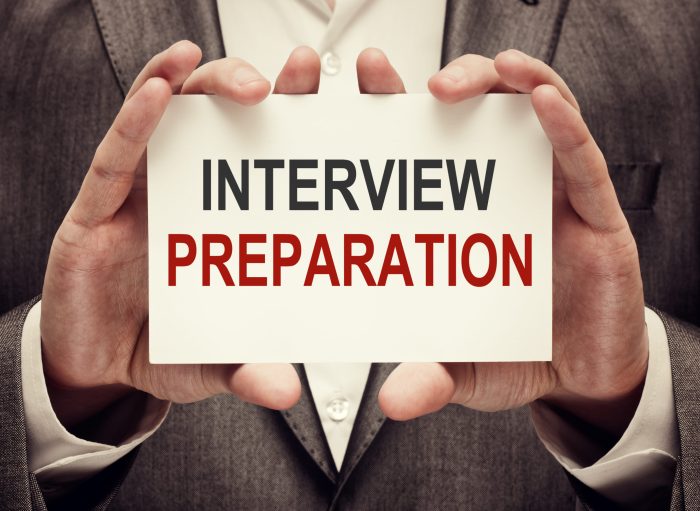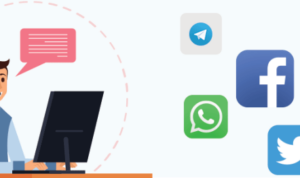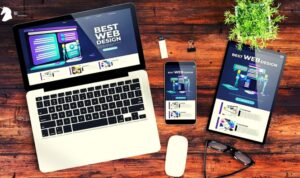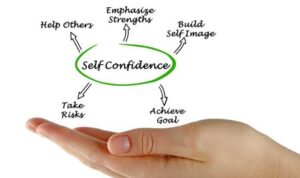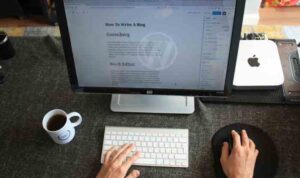Get ready to nail that interview with Job Interview Preparation, where we break down the essential steps to help you stand out and land that dream job.
From researching the company to mastering common interview questions, we’ve got you covered with everything you need to know.
Importance of Job Interview Preparation
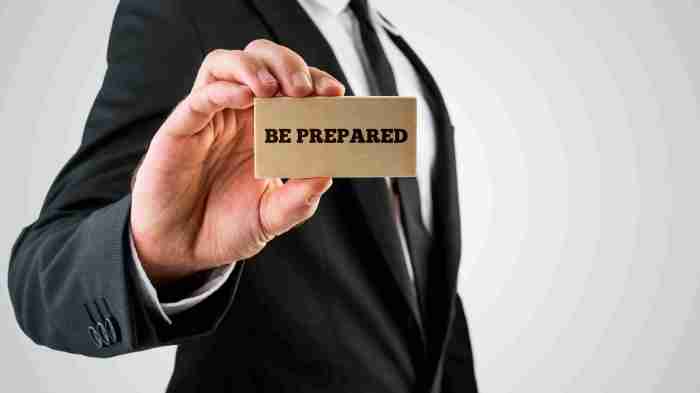
Preparing for a job interview is crucial because it allows you to showcase your skills, experience, and qualifications effectively. It gives you the opportunity to present yourself in the best possible light and stand out from other candidates.
Benefits of Being Well-Prepared
- Increased Confidence: Proper preparation helps boost your confidence during interviews, allowing you to answer questions more confidently and articulate your responses clearly.
- Improved Performance: Being well-prepared enables you to provide thoughtful and relevant answers, demonstrating your knowledge and expertise to the interviewer.
- Professional Impression: Preparation shows that you are serious about the job opportunity and have taken the time to research the company, position, and industry, leaving a positive impression on the interviewer.
- Effective Communication: Through preparation, you can practice your responses to common interview questions, ensuring that you can communicate your qualifications and experiences effectively.
Researching the Company
Researching the company before a job interview is crucial for showing your interest and preparedness. It allows you to tailor your responses to align with the company’s values, goals, and culture, making you a more attractive candidate.
Significance of Researching the Company
- Understanding the company’s background, products, and services helps you demonstrate your knowledge during the interview.
- Researching the company’s recent news, projects, and achievements shows that you are up-to-date and invested in their success.
- Knowing the company’s mission and values allows you to showcase how your own goals align with theirs.
Where to Find Information about the Company
- Visit the company’s official website and explore their “About Us” section, press releases, and latest updates.
- Follow the company on social media platforms like LinkedIn, Twitter, and Facebook to stay informed about their activities.
- Read news articles, industry reports, and reviews related to the company to gain a broader perspective.
Impressing Interviewers with Company Knowledge
- Referencing specific projects or initiatives the company is involved in shows your enthusiasm and dedication.
- Connecting your skills and experiences to the company’s needs and goals demonstrates your suitability for the role.
- Asking insightful questions about the company’s future plans during the interview displays your genuine interest and engagement.
Common Interview Questions
When preparing for a job interview, it’s important to anticipate and have responses ready for common interview questions that are frequently asked by employers. Being prepared can help you feel more confident and articulate during the interview process.
Behavioral Questions
- Can you tell me about a time when you had to overcome a challenge in the workplace?
- Describe a situation where you had to work as part of a team to achieve a common goal.
- How do you handle conflict or difficult situations with coworkers or clients?
- Share an example of a successful project you completed and the role you played in it.
When responding to behavioral questions, use the STAR method: Situation, Task, Action, Result. This helps structure your answers and provide specific examples to support your skills and experiences.
Importance of Practicing Responses, Job Interview Preparation
- Practicing responses to common interview questions can help you refine your answers and ensure you are highlighting your qualifications effectively.
- By rehearsing your responses, you can also work on improving your delivery, tone, and confidence during the interview.
- Mock interviews with friends, family, or career counselors can be a great way to practice and receive feedback on your responses.
Dressing for Success
When it comes to a job interview, dressing appropriately plays a crucial role in making a good first impression. Your outfit can convey professionalism, attention to detail, and respect for the opportunity. Here are some guidelines on how to dress professionally for different types of interviews and some tips on grooming and personal presentation.
Professional Attire for Interviews
- For a formal interview, opt for a well-fitted suit in neutral colors like navy, black, or gray.
- Ensure your clothes are clean, pressed, and free of wrinkles or stains.
- Choose conservative accessories and minimal jewelry to avoid distractions.
Casual Attire for Interviews
- If the interview environment is more casual, you can still dress professionally by wearing dress pants or a skirt with a blouse or a collared shirt.
- Avoid wearing jeans, t-shirts, or sneakers even in a casual setting.
- Opt for closed-toe shoes and ensure they are polished and in good condition.
Grooming and Personal Presentation Tips
- Make sure your hair is clean, well-groomed, and styled appropriately for the interview.
- Keep your nails clean and trimmed, and avoid flashy nail polish colors.
- Limit the use of strong perfumes or colognes as they can be overwhelming in close quarters.
- Practice good posture and maintain eye contact during the interview to exude confidence and professionalism.
Mock Interviews
Mock interviews are a crucial part of preparing for a real job interview. They provide a safe space to practice answering common interview questions, receive feedback, and improve your overall interview skills.
Setting up a Mock Interview Scenario
- Find a quiet space where you can simulate a professional interview setting.
- Ask a friend, family member, or mentor to act as the interviewer.
- Dress professionally and bring a copy of your resume and any other relevant documents.
- Prepare a list of common interview questions to practice during the mock interview.
Benefits of Conducting Mock Interviews
- Builds confidence: Practicing in a mock interview setting can help reduce nervousness and boost your confidence for the real interview.
- Identifies areas for improvement: Feedback from the mock interviewer can help you identify your strengths and weaknesses, allowing you to focus on areas that need improvement.
- Improves communication skills: Mock interviews help you practice articulating your thoughts clearly and concisely, improving your communication skills.
- Enhances problem-solving abilities: By simulating real interview scenarios, mock interviews can help you think on your feet and improve your problem-solving abilities.
Follow-up Strategies: Job Interview Preparation
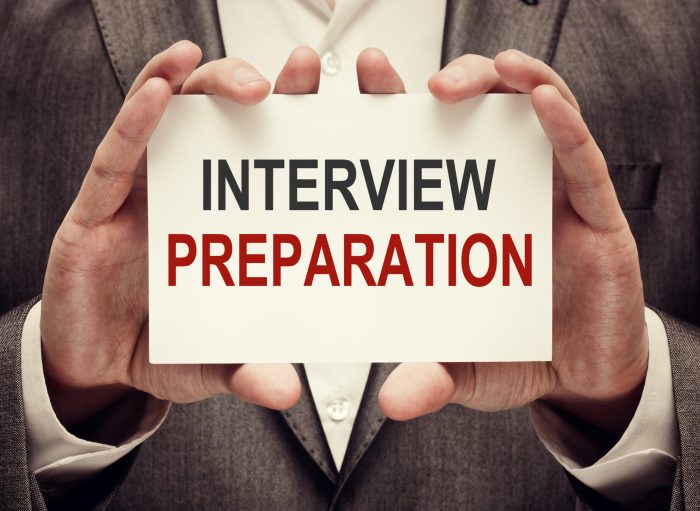
After a job interview, it is crucial to send a follow-up message to express gratitude, reiterate your interest in the position, and leave a lasting impression on the interviewer. This step can set you apart from other candidates and showcase your professionalism.
Crafting a Professional Thank-You Email
Sending a thank-you email is a standard practice after a job interview. Here are some guidelines to craft a professional message:
- Address the interviewer by name.
- Express gratitude for the opportunity to interview.
- Reiterate your interest in the position and the company.
- Highlight a key point from the interview or mention something specific that resonated with you.
- Keep it concise and error-free.
Following Up Without Being Pushy
It’s essential to follow up after an interview without coming across as too pushy. Here are some tips to strike the right balance:
- Wait a day or two before sending a follow-up message.
- Mention that you are following up on your interview and reiterate your interest.
- Offer to provide any additional information or answer any further questions they may have.
- Be polite and respectful in your communication.
- Avoid sending multiple follow-up messages in a short period.
